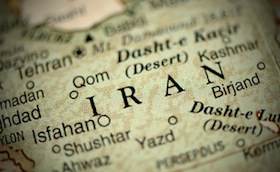Diplomatic Strategy Needed With Sanctions on Iran
July 25, 2011
Featured Image
Today's top nuclear policy stories, with excerpts in bullet form.
Stories we're following today: Monday, July 25, 2011.
Slowing Iran’s Nuclear Ambitions - Peter Crail in the Washington Post [link]
- The July 22 editorial "Iran, undeterred" correctly observed that sanctions have not led Iran to end its pursuit of nuclear weapons. But the editorial’s critique that sanctions are not slowing those pursuits ignored the most vital component of that assessment: that Iran has difficulties acquiring the materials necessary for its nuclear program.
- Slowing Iran’s nuclear progress is an important accomplishment along the path to preventing an Iranian nuclear weapon, and doing so using sanctions is preferable to using military action, which will only similarly delay Iran’s nuclear drive but result in dire consequences for U.S. security aims in the region.
- A comprehensive strategy using sanctions to build diplomatic leverage and international pressure will be needed to convince Tehran that it has nothing to gain and much to lose by developing a nuclear weapons capability.
Republican Revolution on Nuclear Weapons? - Joel Rubin in Politico [link]
- Will Republicans, during these debt-ceiling negotiations, do the unthinkable and support cutting defense spending to avoid raising taxes on the uber-wealthy? The answer is yes, as it should be … we should dramatically reduce the nuclear weapons budget. Doing so will do no harm to our national defense.
- But don't take my word for it. Take Senator Tom Coburn's (R-Okla.). His proposal this week to lop off $9 trillion from the national debt over the next decade would halve the total number of nuclear warheads in our combined active and reserve stockpiles from about 5,000 to nearly 2,500. This would save nearly $80 billion over the next decade … And Coburn is not alone.
- Political space therefore exists to make these cuts, and the nuclear weapons budget, which is expected to cost nearly $700 billion over the next decade, is ripe for the slashing. We just can’t afford to waste this kind of money on Cold War weapons that serve minimal strategic purpose in the 21st century.
- So what will Republicans do? Will they support strategically sound, fiscally prudent choices? … It’s time to cut the nuclear weapons budget. Will the Republicans play along?
From Budget Cuts to Dirty Bombs - Kenneth Luongo and Kenneth Brill in The New York Times [link]
- Last week, [The House of Representatives] passed an energy and water budget bill that slashes the country’s defenses against nuclear terrorism — a threat both parties have long recognized as one of the most serious facing America. The Senate has the opportunity to reverse that mistake.
- The House eliminated a program that seeks to remove and secure 1,900 radioactive sources…throughout the United States…[and] slashed funds for efforts to convert nuclear reactors across the world that run on bomb-grade, highly enriched uranium so that they use a less dangerous type of fuel.
- The programs the House has cut are proven, effective and prudent national security investments to prevent nuclear terrorism and its devastating consequences. Slashing America’s best defense against nuclear terror will not make us safer or richer. In fact, it could invite the opposite result.
North Korean Envoy to Visit U.S. for Nuclear Talks - Choe Sang-Hun in The New York Times [link]
- A senior North Korean diplomat [Kim Kye-Gwan] believed to be an important strategist in his government’s nuclear negotiations with the United States will visit New York this week to discuss restarting talks seeking to end the North’s nuclear weapons program, Secretary of State Hillary Rodham Clinton said Sunday.
- The timing of Washington’s invitation to Mr. Kim provides another sign that the countries involved in the talks — which also included China, Russia and Japan — were serious about restarting the negotiations.
Iran Prez Said Pushing for Nukes - George Jahn in The Associated Press [link]
- Iran's president wants to shed the nation's secrecy and forge ahead openly with developing nuclear weapons but is opposed by the clerical leadership, which is worried about international reaction to such a move, says an intelligence assessment shared with The Associated Press.
- That view, from a nation with traditionally reliable intelligence from the region, cannot be confirmed and contrasts with assessments by other countries...
- Khamenei, whose word is final on nuclear and other issues, "wants to progress using secret channels, due to concern about a severe response from the West," says the report.
- "There is a lot of caution in the regime about the implication of building nuclear weapons," says [David Albright of the Institute for Science and International Security]. Asked whether Ahmadinejad or Khamenei have been the most circumspect, he says "the implication is that it was the Supreme Leader."

